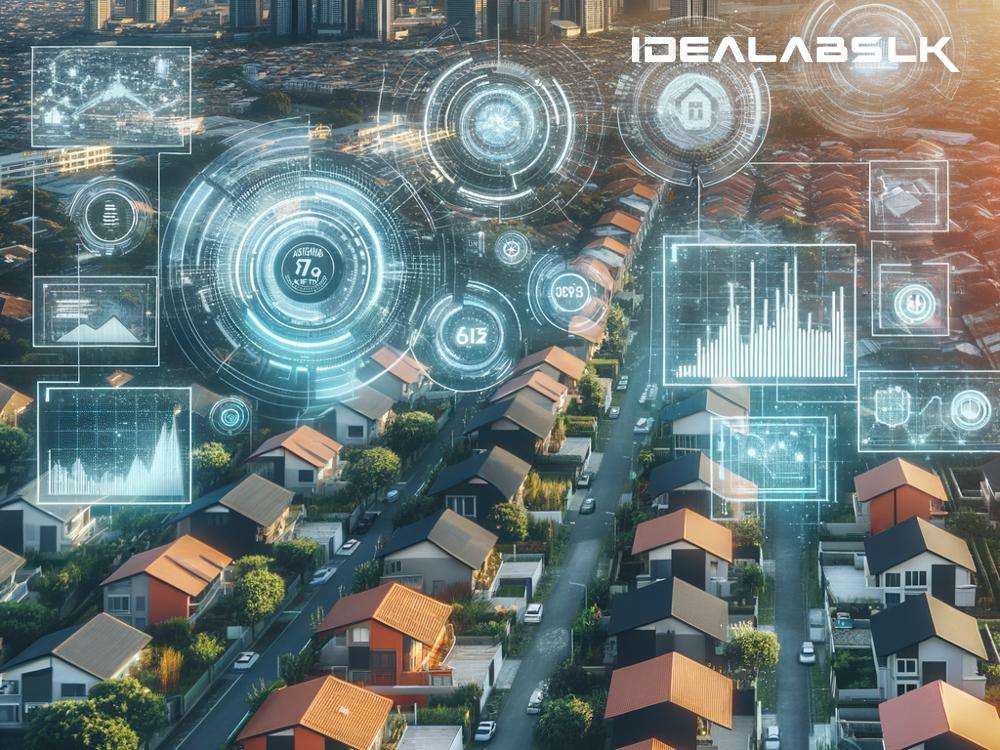Unleashing the Power of AI in Real Estate: How Machine Learning is Transforming Property Valuation
In the ever-evolving world of real estate, technology has always played a pivotal role in shaping how we buy, sell, and value properties. The latest game-changer in this dynamic industry is Artificial Intelligence (AI), particularly through its subset, Machine Learning (ML). This groundbreaking technology is redefining the traditional methods of predicting property values, making the process more accurate, efficient, and accessible than ever before.
Understanding Machine Learning in the Realm of Real Estate
At its core, Machine Learning is a branch of AI that allows computer systems to learn from and interpret data, making decisions with minimal human intervention. It's like teaching a computer to recognize patterns by showing it a ton of examples rather than explicitly programming it to perform a specific task.
In real estate, this capability is a goldmine. The value of a property is influenced by countless factors – location, size, age, nearby amenities, economic indicators, and even the condition of neighboring properties. Manually analyzing all these variables for every property is virtually impossible. Here's where Machine Learning steps in, sifting through vast datasets to identify patterns and predict property values with remarkable accuracy.
The Magic Behind Machine Learning in Property Valuation
Imagine trying to estimate the value of a home. Traditionally, you might look at recent sales of similar homes in the area, consider the property's condition, and maybe factor in things like schools and public transport access. It's a time-consuming process, and despite your best efforts, it's easy to overlook critical factors. Now, envision feeding all available property data into a machine learning algorithm – not just from one neighborhood, but from thousands of locations, incorporating not only sales records but also demographic changes, economic trends, and even satellite imagery. The algorithm learns from each piece of data, understanding complex relationships and predicting property values with astonishing precision. This is the power of Machine Learning in the real estate sector.
How Does This Benefit the Real Estate Industry?
-
Accuracy and Efficiency: Machine Learning models can process a volume of data no human ever could, delivering more accurate property valuations and doing so much faster than traditional methods. This efficiency can significantly speed up the buying and selling process, benefiting everyone involved.
-
Better Decision Making: With more precise valuations, buyers, sellers, and real estate professionals can make more informed decisions. Sellers can price their properties realistically, while buyers can ensure they're getting fair value for their investment.
-
Market Insights: AI-driven analysis can unearth trends and patterns that might not be immediately obvious, providing valuable insights into market dynamics. This can guide investors towards lucrative opportunities or help forecast future market movements.
-
Personalization: Machine Learning can also tailor property searches and recommendations to individual preferences, improving the customer experience. Rather than sifting through irrelevant listings, buyers can see properties that truly match their needs and desires.
Challenges and Considerations
Despite its vast potential, integrating Machine Learning into real estate isn't without challenges. Data privacy and security are paramount concerns, as is ensuring algorithms are free from biases that could skew valuations. There's also the human element – professionals need to interpret and utilize AI-driven insights effectively, complementing technology's capabilities with their expertise and understanding of the market.
The Future Is Here
We're only scratching the surface of how AI and Machine Learning can revolutionize the real estate industry. As technology evolves, we can expect even more sophisticated applications, from virtual reality tours powered by AI to blockchain-based transactions seamlessly integrated with ML-driven property valuations.
The key takeaway is that the future of real estate lies in the hands of those who embrace these technological advancements. By leveraging Machine Learning to predict property values, the industry can achieve a level of precision, efficiency, and insight previously unimaginable. For professionals and clients alike, this is an exciting journey – one where every participant stands to gain from the incredible potential of AI in real estate.
In conclusion, the integration of Machine Learning in predicting property values represents a significant leap forward for the real estate industry. By harnessing the power of AI, we're not just transforming how properties are valued; we're reshaping the entire real estate landscape, making it more transparent, efficient, and fair for everyone involved. The future of real estate is bright, and it's undoubtedly powered by Artificial Intelligence.

